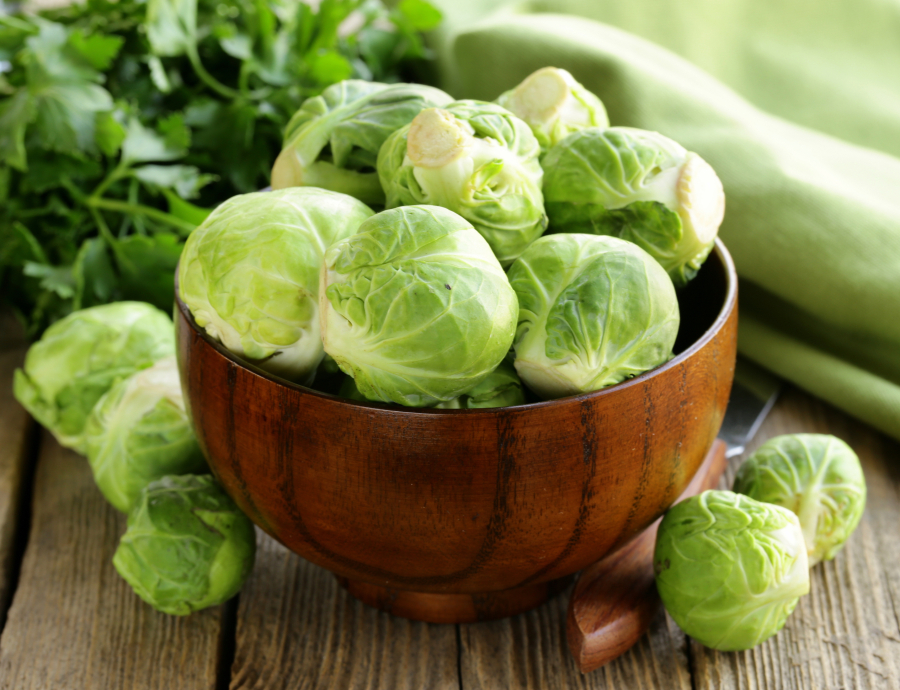Brussels sprouts seem to be a vegetable you either love or hate. They are small, leafy green buds that look like miniature cabbages that grown in multiples on a stalk and are in fact in the same family as cabbage, broccoli and kale.
Originating in Belgium near Brussels in the 16th century, French settlers brought Brussels sprouts to Louisiana in the 18th century, where they became a commercial crop in the 1920s. Today, there are dozens of types of Brussels sprouts, including purple ones and sizes ranging from marble size to almost golf ball size! Currently most Brussels sprouts grown in the United States are from California and Washington’s Skagit Valley.
One cup of Brussels sprouts is only 56 calories and has more vitamin C than an orange. They are also an excellent source of protein, fiber, minerals, vitamins and folic acid. Per ounce, they weigh in to be the heavyweight nutrition contender of vegetables.
A cool season vegetable, Brussels sprouts are at their best from autumn through early spring when they are at the peak of their growing season. When buying fresh choose firm, compact heads that are a darker green and similar size. Avoid sprouts with yellowed leaves. Remove any damaged or discolored leaves before storing in plastic bags in the refrigerator for up to a week or longer depending on freshness. Brussels sprouts can be purchased on the stalk and will store much longer than when pulled off the stalk. When pulled off the stalk and stored at 32 degrees, the shelf life will extend from one week to three to five weeks.
Fresh Brussels sprouts have a delicate, slightly sweet taste with a pleasant crispness as long as they are not overcooked. Overcooking will bring out the strong unpleasant flavor that many of us don’t like. To preserve the best flavor of fresh Brussels sprouts, drop them in boiling water for 8-10 minutes or until tender. Serve immediately, or plunge in cold water to prevent further cooking.
Traditionally Brussels sprouts are served at Christmas with roasted chestnuts and go well with other members of the nut family, especially almonds or pecans. Delicious in salads or as a side vegetable, Brussels sprouts can be prepared in a multitude of ways.
By sizing the Brussels sprouts, you ensure even cooking whether boiling, steaming, stir frying, grilling or roasting. My favorite way of preparing them is to toss in olive oil by themselves or with chunks of butternut squash and onion, fresh ground salt and pepper and roast in the oven at 375 degrees until they golden brown. Or make fantastic chips by peeling the leaves, toss in olive oil and salt and roast until they turn crispy — absolutely divine!
Brussels sprouts can also be pickled or frozen to extend the harvest. To freeze, blanch them first for between three to five minutes depending upon size. Cool promptly, drain, package in freezer bag and freeze. They will keep in the freezer for up to one year, though for optimum flavor eat within six months.
For additional Brussels sprouts recipes and serving suggestions, check out Chef Scotty’s Market Fresh Recipes at ext100.wsu.edu/clark/?p=8163.
Vicki Ivy is a Clark County WSU Extension Master Food Preserver. For additional recipes, food preservation and food safety information visit ext100.wsu.edu/clark/?p=1134. Have questions? Call MFP Helpline: 360-397-6060 ext. 5366, or join Facebook Discussion Group “WSU Home Food Preservers – Clark County.”



